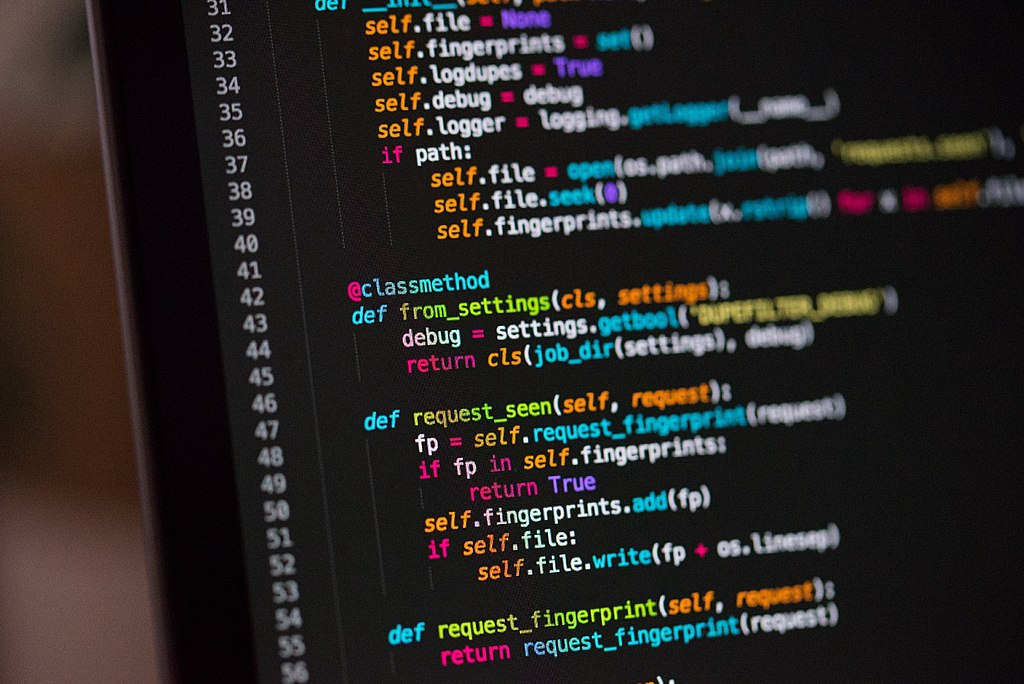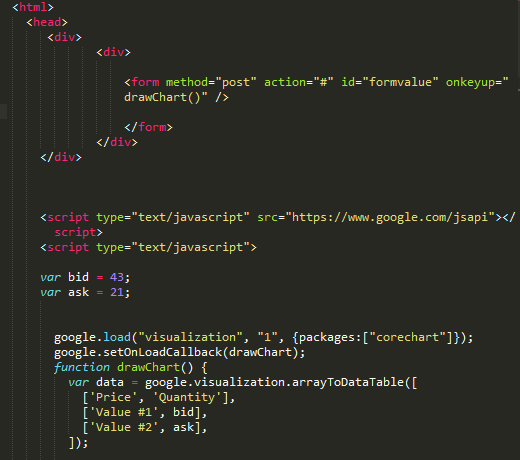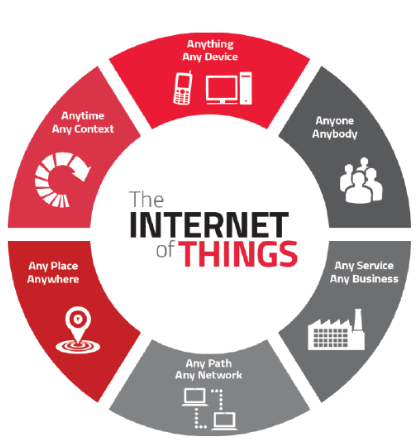IoT is flourishing because it facilitates better decision-making and the intelligent management of material objects. So, IoT engineers can have a bright future.
There is always a need for professionals in this area. So how can I become an engineer for the internet of things?
Let’s locate the information that may be important for you via this post!
Job Description
The invention and expansion of the hardware, sensors, and software necessary for the machine to connect to other networks without interruption is the principal responsibility of an IoT developer. They handle the research, planning, coding, testing, and writing for an internet of things solution.
Specialists in the Internet of Things (IoT) may be responsible for the design, coding, and evaluation tasks. Still, these responsibilities will vary depending on their field of expertise.
By examining customer needs, they can serve as service designers and offer alternatives for any network and platform connectivity problems.
In addition to designing platform services that are cloud-compatible and effective with IoT systems, an IoT engineer is frequently needed to create software that monitors and controls business operations. They must also develop software for the interoperability and operation of IoT devices.
So what are the responsibilities of IoT engineers? Have a look at the list below.
- Designing and developing hardware, software, and sensors
- Examining, developing, evaluating, and recording IoT solutions
- Creating, developing, and testing IoT device functionalities
- Offering fixes for problems with networks and platform connections
- Considering user requirements and acting as a service designer
- Creating software that executes and monitors processes
- Developing solutions that can run IoT apps that are compatible with the cloud
- Designing software that enables IoT devices to operate and communicate with one another
Education

You can implement IoT at any level. The ideal candidates for IoT courses are engineering students and recent graduates with a solid grasp of electronics and microprocessors. Many engineering programs do not require students to take classes related to the Internet of Things.
Freshman engineering learners will investigate artificial intelligence, big data analytics, robotics, and the Internet of things.
They will also join an obligatory induction procedure and internships, according to a revision to the undergraduate curriculum by the AICTE.
The IoT Training Curriculum contains a thorough description of each IoT layer’s purpose and an introduction to what IoT means, how it operates, and how it impacts businesses and consumers.
Essential Skills
Professionals researching how to be an IoT Engineer should know the competencies needed in this area. Some of those consist of:
Hard Skills

1. Programming skill
This knowledge is the minimum needed for entry-level positions as an IoT Engineer. Learning computer languages like R, Java, Python, and C++ to create and construct models is vital for being effective in IoT.
2. Statistics, probability, and linear algebra
You will need a thorough understanding of linear algebra, statistics, and probability to comprehend and use various IoT models, including Naive Bayes, Hidden Markov, etc.
3. Big data technologies
Big data technologies manage the massive volumes of data that IoT engineers handle. Employees need to be familiar with Hadoop, Apache Spark, and MongoDB.
4. Frameworks and Algorithms
Once you understand how KNN, linear regression, Naive Bayes, and other methods work, building models for machine learning becomes a breeze.
In addition, if you want to create unstructured data, you need to master deep learning methods and implement them with the help of a framework. A few examples of AI frameworks are Theano, TensorFlow, Caffe, and PyTorch.
Soft Skills
1. Communication skills
It is frequently necessary for developers of artificial intelligence to explain facts and technical details to a diverse group of people with varying levels of technological expertise.
For instance, a brand new AI model could need to be presented to all organizational departments. Therefore, you ought to be a skilled communicator both orally and in writing.
2. Problem-solving skills
It needs innovative problem-solving skills to succeed as a software developer or data scientist. Artificial intelligence necessitates the growth of critical and inventive problem-solving skills since it aims to solve issues in real-time.
3. Teamwork skills
People in this sector frequently collaborate with other AI engineers and IT specialists, so you must be able to function well in a team setting.
Essential Tools

You must first build a strong base in the following categories if you want to be successful as an IoT developer:
1. Get to know sensors inside and out
As you may know, IoT developers must have a solid knowledge of sensors because the IoT is mostly about sensors. In an IoT connection, sensors are the objects that gather and transmit information.
You should get familiar with the architecture and workings of several varieties of sensors.
2. Improve your knowledge of Python and JavaScript
Knowing Python or JavaScript is essential for developing IoT applications since people will use those two languages to build most IoT products and solutions.
JavaScript, which is an internet-based and event-centric dialect, is appropriate for the back side for receiving device reactions. Python allows speedy development and flexibility.
3. Use the Raspberry Pi
IoT developers don’t need to have a foundation in electrical engineering or computer science, contrary to the opinion of famous institutions like IEEE, which technologies like Raspberry Pi are working to alter.
Employers may be more receptive to your skills and ability if you design and create small IoT projects on the Raspberry Pi.
Job Outlook
If you work in the IT industry, you may have several positions.
IoT Architect
The duties of this post include creating an IoT strategy and framework from scratch. An architect’s job is to specify the status of an organization.
They create architecture that takes into account both present and future needs.
To build solutions, you’ll need to comprehend a range of technologies. Examples include sensors that collect information and interact with corporate systems.
IoT Developer
They develop software for specialized Internet of Things applications. Another task for these developers is to create algorithms that aid in data analysis and management.
Engineer for IoT Security
You would be in charge of ensuring that the technology developed for the Internet of things is entirely secure and seeking to control them.
It would be beneficial if you studied penetration testing and risk monitoring.
Companies Hiring IoT Engineers
I have the top 10 IoT development businesses in the United States for 2022 after examining the backgrounds of each company, including their experience, knowledge, staff strength, sectors they cover, and many other factors.
All mentioned businesses below are present in many American cities, including Boston, Los Angeles, New York, Chicago, Washington, and numerous others.
- Hyperlink InfoSystem
- SumatoSoft
- Reinventing
- Sirin Software
- Very, LLC
- Infinium
- DataArt
- Coherent Solutions
- Vates
- HData Systems
Salary
The job market for modern IoT is proliferating. Based on Data Science, this industry is one of the top employment opportunities.
An IoT engineer’s income may differ depending on many aspects, including their position and the sector they work in.
An entry-level engineer can make up to $110,000 annually, while a developer with some experience and advanced training can make up to $129,300. And $144,000 can be the annual salary for an expert in a more high-level position.
Pros and Cons of Being an IoT Engineer

Pros
IoT has several advantages to explain why this field is becoming popular.
- Capability
Machine-to-machine connection is a capacity that offers services for more efficiency, allowing employees to concentrate on other tasks.
- Mechanization
The management of machine-to-machine communication also contributes to the process’s ongoing openness and speed.
- Quick Data Access
Sufficient information is readily available, which helps make decisions and makes the task manageable.
- Communication
The Internet of Things (IoT) enables better communication between all linked or physical equipment, letting complete access and enhancing quality control.
- Less money spent
Combining many resources in a single system creates the best use of resources and energy. All you need is a cell phone to manage your entire house easily.
Cons
The Internet of Things has some disadvantages, some of which are as follows:
- Privacy and security
When people connect more devices to the Internet, it means this connection will bring more data transmitted. So, as there are more devices, there is more available information and maintaining its confidentiality is increasingly difficult.
- Problems
Because IoT has extended across such an enormous and diversified network, fixing errors is becoming harder. Additionally, different companies can make it challenging to create devices to communicate with one another.
- The drop in jobs
IoT works similarly to automation in that people complete everything on schedule and flawlessly, requiring less labor and fewer job openings.
- Technology reliant life
As a result of technology’s increasing influence on our lives, human communication skills are deteriorating.
- Compatibility
Since there is presently no global measure for IoT compatibility, it may be challenging for equipment and portable media from multiple manufacturers to interact with one another.
FAQs

Is being an IoT engineer a wise career choice?
IoT specialists and experts are in higher demand than ever, and the companies pay them well from the start.
The IoT sector offers a promising profession for those who wish to exhibit their skills and support businesses in improving customer service.
Is it simple to learn IoT?
IoT will introduce you to the fields of civil engineering and mechanical in addition to computers as sensors collect physics data.
Being a “deep” IoT specialist is challenging. You must have a great sense of renaissance and be naturally curious about the universe.
Who may work as an IoT engineer?
These experts need to be proficient in at least a programming language and have a thorough knowledge of a wide range of hardware and software networks.
Do people use Python in IoT?
Once it refers to IoT, Python becomes a fantastic option. People can apply to both the backend and device software development sides. In addition, MicroPython is ready to use with microcontrollers on Linux-based devices.
Coding Required for IoT?
Yes, coding is essential in this field. IoT uses several code languages to develop powerful modules.
Javascript, Python, Java, PHP, Assembler, Node.js, or Ruby are some of the most commonly used programming languages you may need to employ in the Internet of Things.
What does an IoT engineer study?
The invention and improvement of the hardware, software, and sensors that enable an item to link to other networks without any problems is the primary responsibility of an IoT developer. They research, design, develop, evaluate, and record IoT solutions using interconnected devices and systems.
What kind of education is required for IoT?
A master’s degree and advanced coding abilities are advantageous for aspiring Internet of Things developers.
The IoT industry will be most accessible to individuals with a foundation in software development, engineering, or computer science.
What is the IoT’s future?
IoT has the potential for an endless future. The growth of the industrial Internet will be accelerated by increased network flexibility, connected artificial intelligence (AI), and the capacity to install, coordinate, automate, and defend various use cases at a large scale.
Is IoT an engineering degree?
The degree integrates information technology, data analytics, and electronic engineering to give graduates the abilities and knowledge necessary for an IoT job.
Is IoT part of Computer Science?
The research of fundamental computing engineering topics, such as coding languages, networks, security, etc., is known as computer science and engineering.
The Internet of Things (IoT) is a computer science specialty, and the course will mainly concentrate on IoT.
Career Advice
In conclusion, you need to guarantee to have all of those things to become skilled IoT engineers.
You should have a good background in sensors. You need to understand how wireless communication and sensors operate.
Moreover, it is necessary to spend your time coding and practicing to be better in your major. Also, try to communicate with experienced people in this field to learn more and more.
Lastly, it would help if you were patient with your actions and did not forget to train yourself daily.
